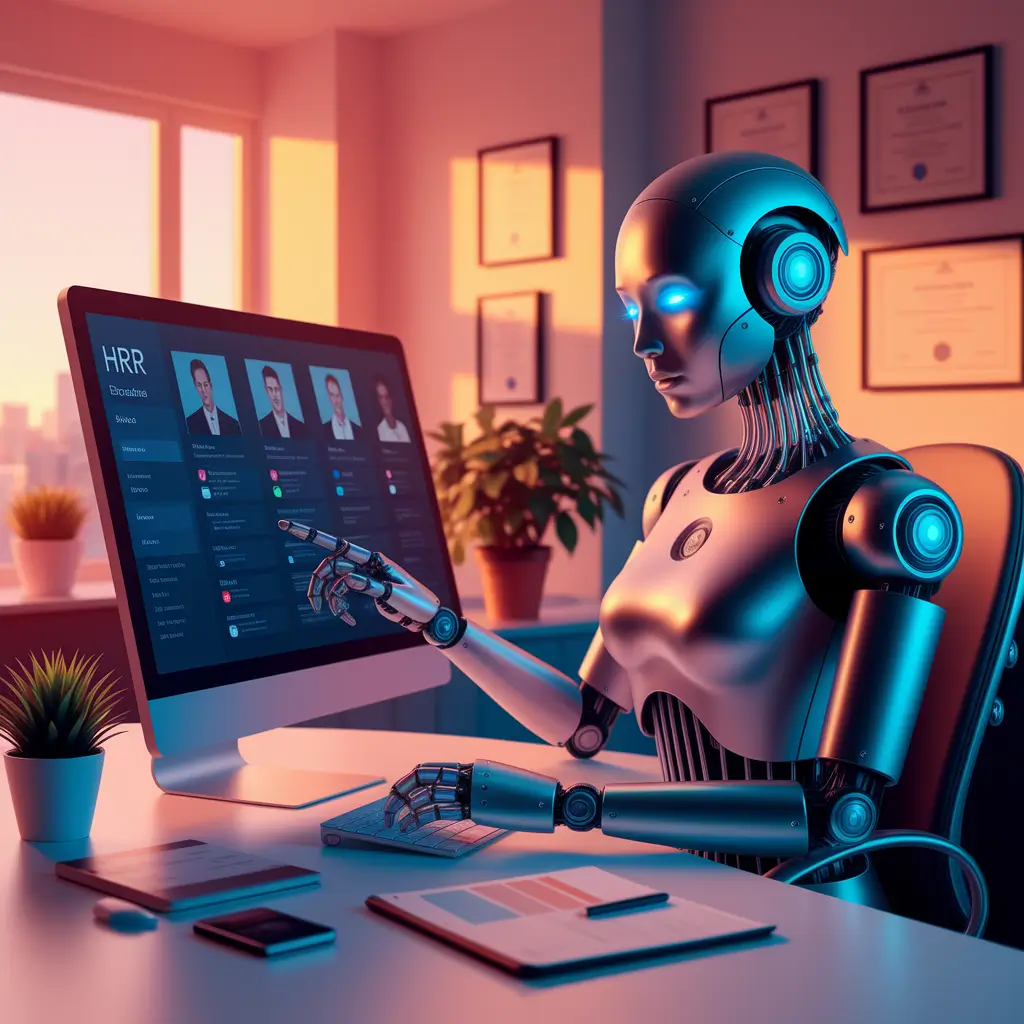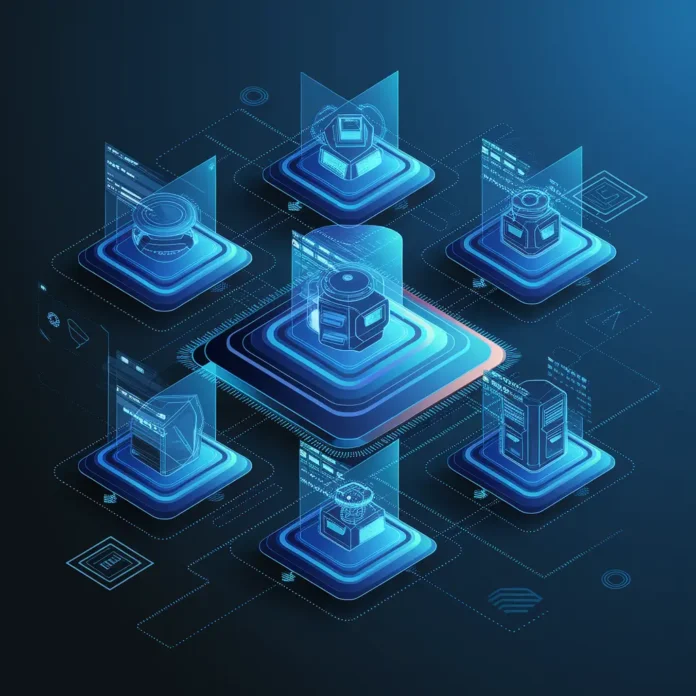Understanding AI Agents in Business Automation is becoming essential for organizations looking to optimize operations, boost productivity, and stay competitive. These intelligent software entities execute tasks independently, adapt to changes, interact with users and systems, and align actions with business goals. As AI continues to evolve, AI agents are poised to revolutionize how businesses operate across departments such as customer service, finance, HR, supply chain, and sales.
Understanding AI Agents in Business Automation
At their core, AI agents are autonomous systems that perceive their environment, make decisions, and act toward achieving predefined objectives. In business automation, this means handling workflows without the need for constant supervision. From processing thousands of customer queries to analyzing complex datasets, AI agents help businesses save time and reduce human error.
Core Concepts of AI Agents in Business Automation
To effectively leverage AI agents, it’s crucial to understand the following foundational principles:
Autonomy
AI agents can perform tasks without human assistance, which reduces manual workload.
Adaptability
AI agents use machine learning to improve task execution based on new information.
Interactivity
They communicate with users and backend systems, ensuring smooth integration with business workflows.
Goal-Oriented Behavior
They aim to fulfill specific business goals, such as increasing sales or minimizing costs.
Benefits of AI Agents in Business Automation
Organizations adopting AI agents experience measurable benefits, including:
- Efficiency: AI agents replace repetitive tasks, allowing staff to focus on strategic efforts.
- Scalability: Capable of handling multiple workflows simultaneously without added costs.
- Consistency: Perform rules-based processes with minimal variation or error.
- Data-Driven Decision-Making: Leverage analytics to provide real-time insights.
Challenges of AI Agents in Business Automation
- Implementation Complexity: Integrating AI agents requires careful planning and resources.
- Data Dependence: AI agents need accurate, relevant data to function effectively.
- Security Risks: Data breaches and unauthorized access can become concerns.
- Workforce Displacement: Automation may affect employment across several sectors.
AI Agents in Customer Service Automation
One of the earliest and most widespread applications of AI agents is in customer support. By managing chat interactions, automating FAQs, and providing 24/7 assistance, AI agents dramatically reduce wait times and boost customer satisfaction.
Salesforce’s Agentforce integrates intelligent assistants within the Salesforce Customer 360 platform, delivering tailored experiences in marketing and service operations.
AI Agents in Financial Operations Automation
AI agents play a vital role in financial workflows, including invoice processing, regulatory compliance, fraud detection, and financial reporting.
SAP Joule Agents actively operate across the finance sector by managing procurement, logistics, human resources, and more with seamless AI integrations.
AI Agents in Human Resources Automation
In HR, AI agents assist with recruitment, onboarding, employee records management, and performance tracking. This fosters a more efficient and transparent employee experience.
IBM’s watsonx Orchestrate empowers HR teams to deploy intelligent agents that streamline candidate management and engagement tasks.
AI Agents in Sales and Marketing Automation
Modern sales teams rely on AI agents for lead generation, campaign personalization, and pipeline forecasting. These agents analyze purchase behavior, conduct outreach, and even schedule follow-ups autonomously.
The AI agent Aomni reshapes B2B sales by analyzing market signals, account data, and automating research on high-potential leads.
AI Agents in Supply Chain Management
In supply chain processes, AI agents monitor inventory in real-time, automate shipping coordination, and flag disruptions before they escalate. This ensures smoother logistics and minimized downtimes.
SAP Joule-enhanced agents proactively analyze purchase orders and logistics flows to detect anomalies and optimize strategic procurement planning.
Evolving Trends in AI Agents in Business Automation
The following modern developments are shaping the next phase of AI agents in business:
- Embedded Integration: AI agents are being embedded in CRM and ERP systems natively.
- No-Code/Low-Code Development: Platforms like Microsoft’s Copilot Studio make it easy for non-tech users to deploy agents.
- Improved NLP Capabilities: Enhanced language models allow AI agents to handle complex dialogue flows naturally.
- Ethical and Transparent AI: Greater emphasis is being placed on fairness, compliance, and auditability in design.
How to Implement AI Agents in Business Automation
To effectively deploy AI agents, businesses should follow this step-by-step strategy:
1. Define Objectives
Identify the exact problems AI agents will solve—be it customer service scaling, overhead cost reduction, or real-time analytics.
2. Prepare Relevant Data
Train your AI agents with high-quality, structured data that is relevant to specific functions.
3. Choose the Ideal Platform
Evaluate platforms for compatibility, scalability, security, and integration capabilities.
4. Start with a Pilot
Run AI agents in a controlled setting to monitor accuracy and refine processes.
5. Evaluate and Optimize
Continuously monitor results and apply feedback-based optimizations.
Comparing AI Agents to Traditional Automation Solutions
| Feature | AI Agents | Traditional Automation |
|---|---|---|
| Adaptability | High | Low |
| Decision-Making | Autonomous | Rule-Based |
| Scalability | Highly Scalable | Moderate |
| Learning Ability | Machine Learning | Static |
AI Agents vs. Human Workforce in Business Automation
While AI agents bring immense consistency and efficiency, they cannot fully replace human judgment, creativity, and interpersonal skills. An optimal approach is to implement hybrid models that combine the best of both.
Case Study: AI Agent in Action
Consider a retail business that uses AI-powered agents for inventory prediction. After implementation, the store lowered stockouts by 30% and reduced holding costs by 25%. The AI agent learned patterns from years of sales data, weather patterns, and regional preferences.
Common Mistakes When Using AI Agents in Business Automation
- Lack of Clear Goals: Without objectives, AI agents are misaligned or underutilized.
- No Continuous Monitoring: Performance declines without adjustments and oversight.
- Insufficient Data Quality: Poor data leads to inaccurate decision-making.
- Neglecting Ethics: Ignoring bias detection may result in compliance risks.
Actionable Tips for Success with AI Agents in Business Automation
- Start small and scale gradually with proven use cases.
- Collaborate between technical and operational teams.
- Educate your workforce about new technologies to reduce resistance.
- Use dashboards to measure ROI and areas for improvement.

Imagine an AI agent integrated into an HR platform that screens job applications in real time. The agent analyzes resumes, validates credentials, and presents ranked candidates to HR teams, saving countless hours and accelerating hiring cycles.
Future Outlook of AI Agents in Business Automation
AI agents will continue to gain capabilities with advancements in general AI models, enabling them to conduct negotiations, strategize long-term plans, and cross-functional collaboration. Adoption will widen across industry verticals as ROI becomes evident and frameworks mature.
Conclusion: Embracing AI Agents in Business Automation
Understanding AI Agents in Business Automation enables businesses to intelligently streamline operations, reduce redundancy, and innovate efficiently. With defined use cases, implementation strategies, and awareness of ethical implications, these autonomy-driven systems are set to be strategic assets in digital transformation journeys.
Now is the perfect time to assess how AI agents can empower your current workflows and boost long-term growth.
FAQs About AI Agents in Business Automation
What is an AI agent in business automation?
An AI agent is software designed to independently perform business tasks, adapt to data inputs, and make goal-oriented decisions without human intervention.
Are AI agents replacing jobs?
AI agents may automate repetitive roles but often augment the workforce, allowing staff to focus on complex or creative responsibilities.
How do AI agents differ from traditional bots?
Unlike rule-based bots, AI agents learn, adapt, and make decisions using real-time insights from data analytics.
Can small businesses use AI agents effectively?
Yes, with the advent of low-code tools and modular platforms, AI agents are accessible and scalable for small and medium enterprises.
What are the costs involved in deploying AI agents?
Costs depend on the platform, data needs, and degree of customization involved; SMBs can begin with cost-efficient pilot programs.



